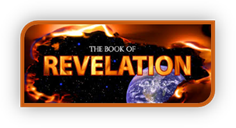|
|
Wednesday January 4th, 2017
|
Why study the book of Revelation?
We should study the book of Revelation because Satan hates it when we study the Word of God and will do everything possible to keep us from studying it
The book of Revelation, as does the entire Word of God, is relevant to us today (2 Tim. 3:16)
-
God's Word teaches us
-
God's Word rebukes us
-
God's Word corrects us
-
God's Word trains us in righteousness
God will bless our study of His Word
We need to hear the message of Revelation
-
It is a message of encouragement
-
It is a reminder of that God has a plan
-
Romans 12:2
-
Jeremiah 29:11
-
We are commanded to study the Word of God
-
Psalm 119:11
-
Joshua 1:8
-
Deuteronomy 11:18-23
The book of Revelation, over the years, has been:
Misunderstood
Misrepresented
Misinterpreted
There are 4 main methods of interpretation that people take when approaching Revelation
The Preterist Interpretation
-
Sees the events recorded in Revelation as being a historical record of events in the 1st Century
-
Requires a belief that Jesus has already returned to the earth
-
Ignores that fact that Revelation claims that much of its content is clearly prophetic in nature
-
Revelation 1:3
-
Revelation 22:7
-
Revelation 22:10
-
Revelation 22:18-19
-
The Poetic Interpretation
-
Theologically liberal view
-
See Revelation as a collection of allegories and stories designed to depict the struggle between good and evil
-
Does not see the events of Revelation as actual events, but simply as myths and fables
The Historicist Interpretation
-
Considers Revelation to be a sweeping overview of church history
-
Sees Revelation as a timeline of church history from the apostolic age to the present day
-
Considers most of the events in Revelation to be past events
-
Those who hold to this view often engage in spiritualizing the text and in viewing it as pure allegory
-
Ignores the claims of Revelation to be prophetic and offers old interpretation and strange application of the text
The Futurist Interpretation
-
Looks at Revelation and sees most of the events as being future in nature
-
Holds that Revelation is mostly prophetic in nature
-
Takes a literal approach to interpretation
-
Allows the events of Revelation to be actual events
-
Believes that everything in Revelation are actual real events
-
This is the only view that allows the book of Revelation to be considered as it is written and for the clearly stated purpose for which it was written
-
Revelation 1:1
-
Revelation 1:3
-
The book of Revelation was written around 95 AD
It was most likely the last Biblical book written
All of John's Biblical writings were written between 80-95 AD
-
The Gospel of John
-
1 John
-
2 John
-
3 John
-
Revelation
It was written during the reign of Emperor Domitian (81-96 AD)
-
He refused to allow any Christian to escape punishment without renouncing his/her faith
-
He blamed all natural disasters on Christians
-
He had John arrested, boiled in oil, and then exiled on Patmos
-
His hostility towards Christians led to Timothy being beaten to the point that he died from the beatings a few days later
The book of Revelation was written by the Apostle John (the Beloved Disciple)
Revelation 1:1
Revelation 1:4
Revelation 1:9
Revelation 22:8
Title = The Revelation of Jesus Christ
Revelation (apokalupis) = an unveiling
Revelation – not Revelations
-
It is a singular revelation
-
It is not a collection of revelations
Revelation is an unveiling of the character and the plan of God
God's Word is a single revelation from beginning to end
The Key Verse – Revelation 1:19 (This verse gives a clear 3-part outline of Revelation)
Chapter 1: The things which you have seen
Chapter 2-3: The things which are
Chapter 4-22: The things which are to come

